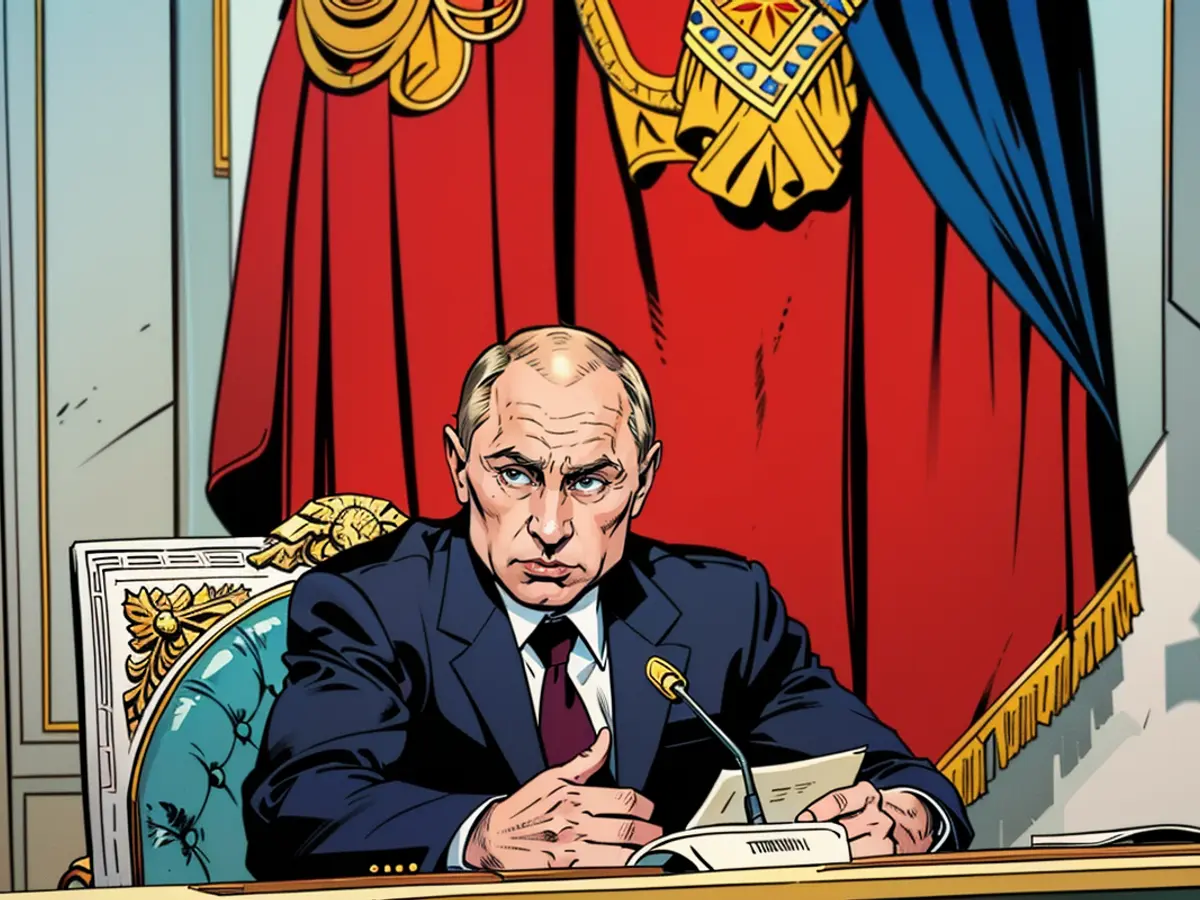In response to attacks on Russia by Ukraine, Putin issues a stern nuclear threat towards the West.
Russia's leadership has chosen to alter its primary nuclear strategy due to discussions in the United States and the UK regarding allowing Ukraine to launch conventional Western missiles towards Russia.
During a Security Council meeting, Putin, as the primary decision-maker for Russia's expansive nuclear arsenal, asserted that the changes were necessary to adapt to a rapidly evolving global landscape with emerging threats.
Putin, at 71 years old, highlighted a significant change in Russia's stance. He suggested that any non-nuclear state involving a nuclear one in an attack against Russia would be deemed as a collective assault on the Russian Federation.
Putin also clarified the conditions for Russia's potential utilization of nuclear weapons, stating they would act in response to a large-scale missile, aircraft, or drone launch against Russia. Additionally, Russia reserved the right to retaliate if it or its ally, Belarus, were subjected to aggression, including conventional attacks.
Putin assured that the adjustments to Russia's nuclear strategy were calculated and aligned with the modern military threats confronting Russia, confirming a shift in the doctrine.
The official 2020 Russian nuclear doctrine, outlined in a decree by Putin, allows for the use of nuclear weapons in response to a nuclear attack or a conventional assault threatening Russia's existence.
The new guidelines put forth by Putin expand the potential scenarios that Russia would consider warranting a nuclear strike, incorporate Belarus under Russia's nuclear protection, and propose that a rival nuclear power supporting a conventional assault on Russia would also be regarded as an attacker.
In 2022, the U.S. expressed concerns about the possibility of Russia using tactical nuclear weapons, as stated by Central Intelligence Agency Director Bill Burns.
Tension
The 2.5-year-old Ukraine conflict has led to the most severe confrontation between Russia and the West since the 1962 Cuban Missile Crisis – often viewed as the closest the Cold War superpowers came to intentional nuclear war.
Ukrainian President Volodymyr Zelensky has been advocating for months for Western allies to approve Ukraine's use of Western missiles, such as long-range U.S. ATACMS and British Storm Shadows, in attacks on Russia to limit Moscow's offensive capabilities.
Amidst Ukraine's losses of key towns to advancing Russian forces in the country's east, the war is reportedly entering its most dangerous phase thus far.
Zelensky has called upon the West to disregard Russia's "red lines", and some Western allies have suggested the U.S. should do the same, though Putin's Russia, which controls about one-fifth of Ukrainian territory, has warned of the risk of a global conflict.
“Russia no longer has any means to intimidate the world other than nuclear threats,” Andriy Yermak, Zelensky’s chief of staff, stated in response to Putin's remarks. “These tactics will not work.”
Putin, who portrays the West as a morally bankrupt aggressor, and U.S. President Joe Biden, who views Russia as a corrupt autocracy and Putin as a murderer, share concerns over a direct Russia-NATO confrontation escalating into World War Three. Republican presidential candidate Donald Trump has also highlighted the potential for nuclear conflict.
Russia possesses the largest nuclear arsenal globally. Together, Russia and the U.S. account for 88% of the world's nuclear warheads.
During his remarks to Russia's Security Council, Putin mentioned that work on altering the strategy had been ongoing for the past year.
“The nuclear triad remains the most significant guarantee of ensuring the security of our state and citizens, a tool for maintaining strategic parity and balance of power globally,” Putin stated.
Putin noted that Russia would consider utilizing nuclear weapons under the receipt of credible information about a large-scale launch of aerospace attack vehicles crossing Russia's borders, encompassing strategic or tactical aircraft, cruise missiles, drones, hypersonic and other aircraft.
In response to discussions in Europe and the United States regarding allowing Ukraine to use Western missiles against Russia, Putin emphasized the necessity of altering Russia's nuclear strategy due to evolving global threats. Furthermore, Putin stated that any non-nuclear state involved in an attack against Russia along with a nuclear one would be considered as a collective assault on the Russian Federation.







